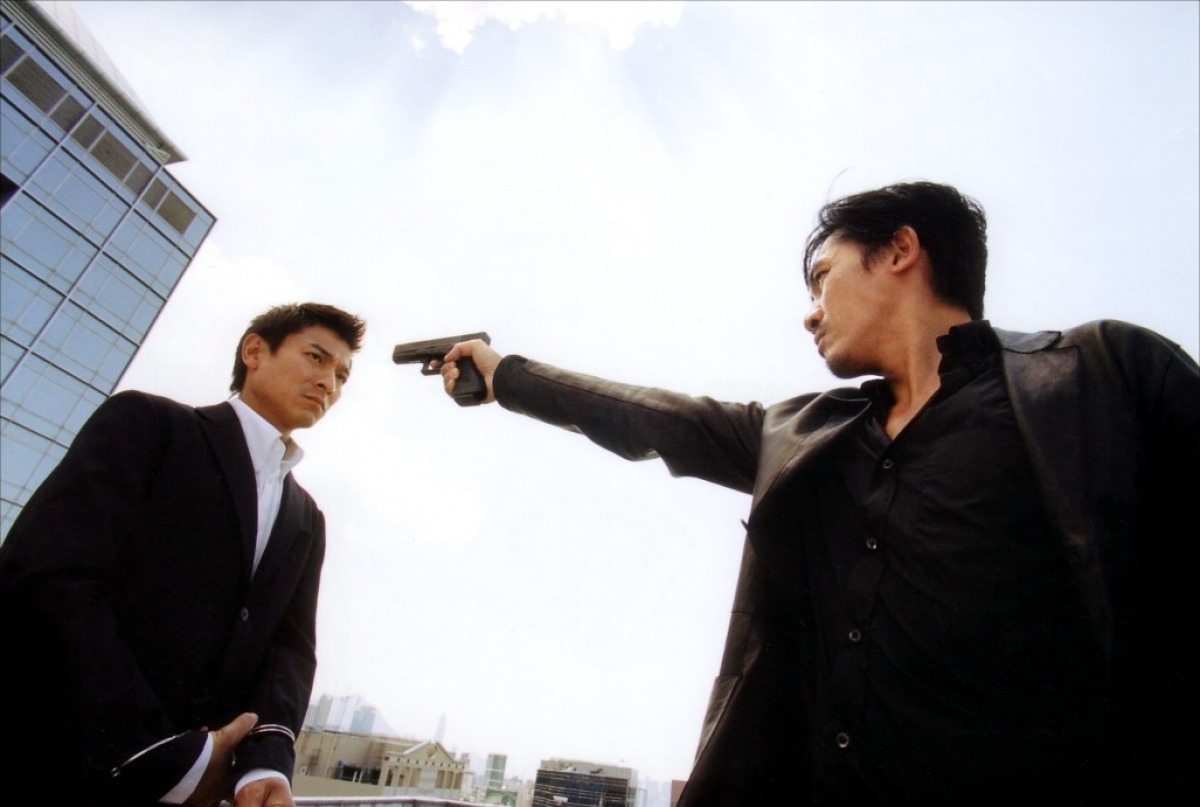
Hong Kong has always been associated with over-the-top violent Kung Fu fare which obscured the view of Western audiences towards the sheer diversity of great cinema the island nation had to offer. One of the biggest casualty of this has been the crime film genre, with occasional bursts into the limelight.
Crime films have been a staple of Hong Kong cinema since the 80’s and had become the stomping ground for many of Hong Kong’s top directors, from action maestro John Woo to arthouse favorites Wong Kar Wai and Fruit Chan. What appealed to film-makers was that they could tell a story of contemporary Hong Kong in a non-compromising manner while still holding some commercial pull.
The genre also helped explore a sense of uncertainty and looming sense of change that installed since the 1980s in Hong Kong, as negotiations between the UK and China were intensifying over the inevitable handover of the colony to China in 1997. Also, these films were generally centered around stories of the Triad, a Mafia style criminal brotherhood with many crime syndicates. Film-makers really saw the chance of shedding light on tabus or simply to exploit them for cinematic spectacle.
While the crime genre had appeared in Hong Kong cinema since late 60’s, either in the form of Kung Fu action flicks, gambling films or comedies, it was the 80’s that created the right medium, both socially and commercially, to shape films about triads and cops into a fully fledged genre on its own.It was with filmakers like John Woo and Ringo Lam and their foray into the genre known to film critics as heroic bloodshed that stories about gangsters as the central characters became bankable.
They acquired this label due to the usually bloody climax of the films’ central conflict, where the hero goes all out in the name of loyalty, honour and friendship. Films like A Better Tomorrow and City on Fire were big box-office hits but were also heavily criticised for their slightly romanticised depiction of the criminal underworld.
The genre developed from heavily stylised high octane action films into more noirish, less glamorised tales, where the dividing line between right and wrong is heavily blurred. Instrumental to this change has been Johnnie To, which gave increased complexity and nuance to a genre that had commodified itself to death. Crime films from the mid 90’s onwards are more cynical, gritty and reveal more of the ritualistic but also chaotic nature of the criminal underworld.
From docu-drama style dissections of the Triad lifestyle to action packed thrillers, from gambling themed comedies to social dramas, the Hong Kong crime is a unique cinematic universe in its own right, that deserves to be explored and enjoyed.
20. City on Fire (1987, Ringo Lam)
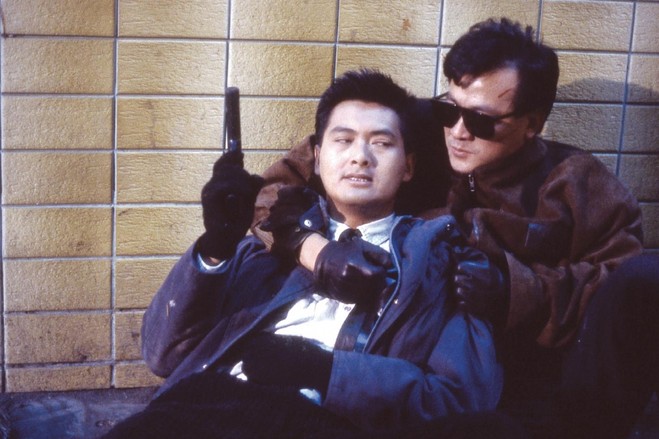
City on Fire achieved cult status in the 90s by being cited by Quentin Tarantino as a source of inspiration for Reservoir Dogs, and is even today a classic of the heroic bloodshed genre.
The film focuses on officer Ko Chow, played by Chow Yun Fat, who at the pressure of his superior and uncle reluctantly goes undercover to find answers regarding the murder of another undercover officer, which seems to be connected to a string of jewelry robberies. As he gets deeper inside the crime ring, Ko sees his integrity as an officer question and his relationship with girlfriend falling apart. As he also befriends the lieutenant of the crime ring, Fu played by Danny Lee, he begins to doubt whether he is on the right side of the law.
While City of Fire mainly plays like a fast-paced shoot’em up action fare, it takes its time to establish ties and bonds between characters. At its core, it is a reflection of themes very close to both Cantonese and Chinese cultures: family, loyalty, friendship Every step of the way, Ko Chow is made to choose between conflicting loyalties as he sees his relationship to his girlfriend falling apart.
An unsung merit of the film is the way it depicts social divisions in Hong Kong society. A scene which illustrates that very well is when Fu admits to Ko that he can’t read and talks about his father being a robber as well. It suggests that a life of crime was never something of his choosing.
While occasionally over the top and outdated, City of Fire compensates with a good pacing of storytelling, heart-felt moments and a solid performance from both Chow Yun Fat and Danny Lee. The final square off between cops and robbers is both spectacular and dramatic, and is on par with even some of John Woo’s finest action sequences.
19. Long Arm of The Law (1984, Johnny Mak)
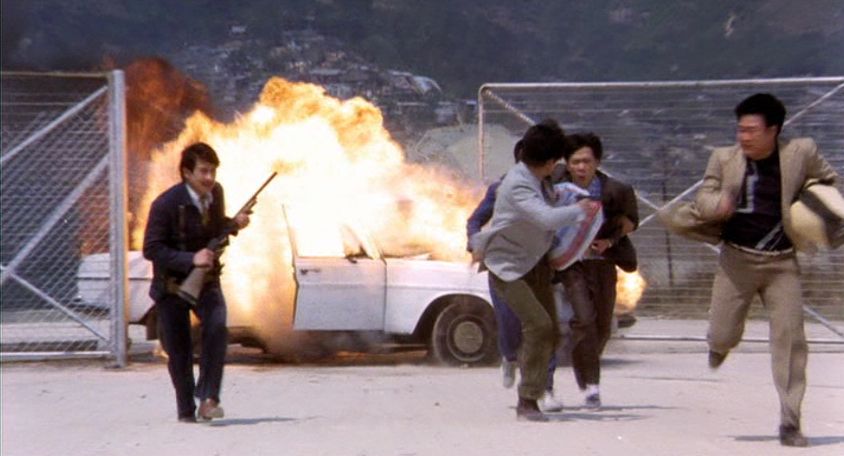
Mostly forgotten now, The Long Arm of the Law came at a time of increased maturity of the Hong Kong action film as more drama, realism and social commentary was being inserted alongside fast paced action sequences. Johnny Mak’s tale of a heist gone wrong is a trailblazer in that respect.
The film follows the exploits of a gang of ex-soldiers from Mainland China planning to rob a jewelry store in Hong Kong, They follow experienced gang member Tung and illegally cross into Hong Kong. When they get ready to perform the heist they find that somebody else had already attempted to rob it and failed.
While this turns their plans upside down, they are not going to leave without any spoils of war and arrange a different scheme. But gradually everything goes from bad to worse, and the gang of friends soon see themselves running for their lives chased by the police.
The cast is mostly comprised out of amateurs and that works in the film’s advantage. They are neither hardened criminals, slick professionals or the gung-ho personas of later heroic bloodshed films. These are regular people with very different personalities. They do convey the notion that these are real people that can become ruthless criminals to get out of poverty or avoid being imprisoned. The film alternates scenes of great compassion and humour with unrelentingly violent action scenes.
The film is also a great commentary on the lure of capitalist wealth and consumer culture. When they leave for Hong Kong, the gang thinks more of their shopping lists than on the nuts and bolts of their mission. They share the obsession with brands and display of wealth that most people in the West shared in the commercial boom and bust period of the 1980s.
18. P.T.U. (2002, Johnnie To)
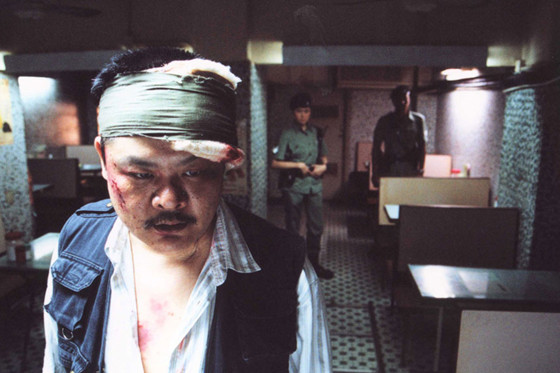
Johnnie To has more entries on this list than any other filmmaker. That’s because he is associated with the crime genre more than any other Hong Kong filmmaker, illustrious guns-ablaze ballet maestro John Woo included. And his quaint procedural cop drama P.T.U. is but one of the many reasons why.
Short for Police Tactical Unit, P.T.U. tells the story of a police unit on their nightly patrol. What starts out to be a routine patrol turns into a test of duty and vigilance as commander Mike Ho (Simon Yam) vows to help officer Lo Sa (Lam Suet) retrieve his gun, which appears to have been stolen by a gang of young hoodlums, after Lo slipped and fell unconscious to the ground.
P.T.U. is probably as much a procedural cop drama, a slow woven thriller as it is a black comedy. Irony and sarcasm blend with gritty images of desolate streets. The film unfolds in the slow plot twisting pace as many of To’s films that here builds up to a surprising resolve. It started a new phase for the filmmaker, embracing some of the genre’s cliches that he had staunchly avoided before, like the grandiose showdown at the end.
It features Milky Way regulars Simon Yam and Lam Suet in roles that create a powerful contrast. While both cops have their duty and career close to their hearts, they vary in their M.O. and rationale for bending the rules. Rigid and pedantic officer Mike Ho is bound by loyalty to fellow officers and patrolmen ahead of rules and regulations whereas Lo San juggles with the law to save his skin as well as get the criminals
P.T.U is, as mentioned, slow paced but hugely entertaining. It also benefits from an elegant cinematography and lavish long-shots capturing the eerie serenity of the Kowloon district at night.
17. Expect The Unexpected (1998, Patrick Yau)
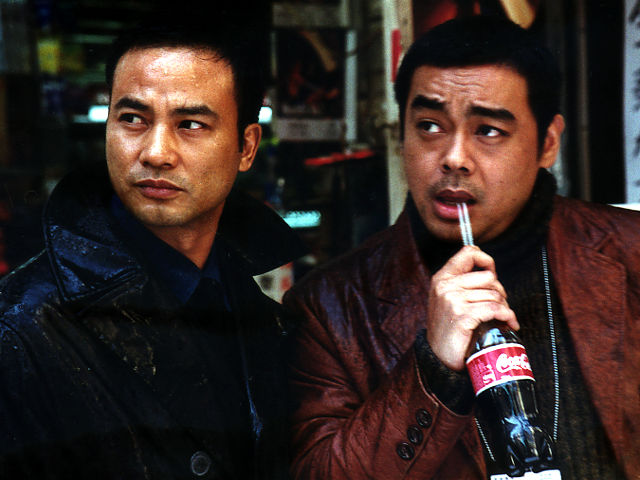
Expect The Unexpected is cop drama at its finest. Spearheaded by great performances from TV and silver screen veterans Simon Yam and Sean Lau, Patrick Yau’s film uses the conventions of the cop thriller drama to coat and meditate on the uncertainty many were feeling after the re-annexation of the island country to China in 1997.
The film’s central focus are the officers of the “O” department, tasked with apprehending a brutal gang of robbers from Mainland China. However in between car chases and shootouts, the film unveils several plot threads that reveal their emotions and insecurities. The central axis of the film is the dichotomy and sibling rivalry between rebel younger brother Sam (Sean Lau) and his older brother and superior, methodic and yet pedantic Ken (Simon Yam). Around the two, love triangles are forged and broken, confessions are made and every character positions themselves around these two strong personality poles.
The film has some solid actions sequences, brilliantly timed car chases and one of the most dramatic shootouts in recent memory. It blends well melodrama with fast paced action, but in a more realist way and in a less overty tearjerking fashion.
Expect the Unexpected is rife with cliches, which it uses well to create a false sense of comfort that is ultimately mangled with deadpan nihilism as the film takes several unexpected turns. Nihilism and cynicism seems to be trademarks of Yau, screenwriter to some of Johnnie To’s past films.
Expect the Unexpected displays a gallery of fragile, deeply emotional personalities with a profound sense of righteousness. He uses them to render the notion that nobody is sheltered or immune in the unpredictable and violent environment of modern life. Not even cops.
16. A Night In Mongkok (2004, Derek Yee)
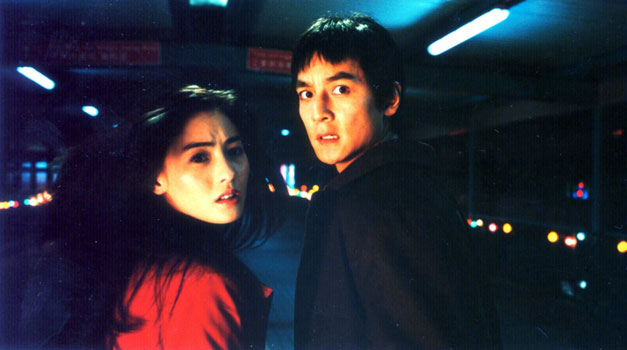
Derek Yee’s thriller is the textbook example of a sleeper hit. A Night In Mongkok is a film which looks like formulaic crowd pleasure that capitalises on its gorgeous leads. However reveals itself to be a brilliantly executed realistic tale of two people caught up in the middle of deadly gang war.
The film centers around rookie hitman Lai Fu (Daniel Wu) who is brought in from mainland China to kill the leader of a powerful Triad outfit by its bitter rivals.Fearing the ignition of a vicious turf war, the police is hot on his tail after being tipped off by the very man that hired him. He goes on the run together with Dan Dan (Cecillia Cheung), a prostitute that he helps escape from the control of her abusive john. The film slowly spirals into a hectic race against time as the two are being chased by the police and Triads.
The core strength of A Night in Mongkok is that all the twist and turns that derail characters from their goals, are wholly believable. That is also because the film takes as much time to emotionally build the characters as it does to create a credible seedy underworld setting, amidst the limelight of the bursting economic miracle of Hong Kong.
It also revives motifs of the heroic bloodshed era: the mainland hitman, the diamond in the rough girl that can change the life of the hero, the simple mission that goes wrong. But again-here they appear less cliche due to the incessant realist tone set by Derek Yee’s skillful direction.
The leads deliver convincing performance but it is really supporting actors such Alex Fong, who plays detective Milo and Lam Suet, as the deceitful hitmen contractor, that really strengthen the film.
15. The Longest Night (1998, Patrick Yau and Johnnie To)
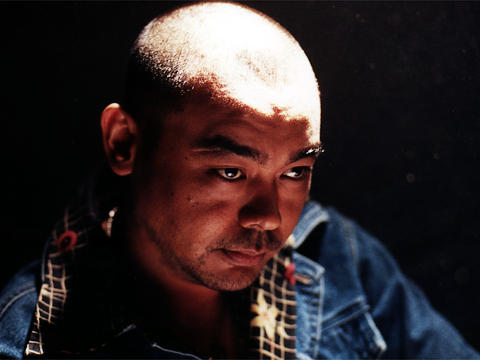
The Longest Night was one of the films that firmly stirred the crime genre in Hong Kong towards a more gritty and less romanticised picture of the criminal underworld.
Set over roughly 24 hours in the Asian gambling Mecca that is Macau, it tells the story of corrupt cop Sam trying to settle a turf war between two local Triad fractions: Brother K, whom he serves and Brother Lung, his bitter rival. Tensions run high as a mysterious hitman makes his presence and turns the entire city upside down. The minute the mysterious gun for hire steps into the scenery, the film progressively turns into a nauseating cascade of plot twists.
The film promptly uses some of the stylistic trademarks of Hong Kong action cinema, such as slow-motion infused gun battles and low shutter speed effect to depict frantic moments of action. However, the nihilism and cynical tone of the film dampens any shade of triumphalism that these stylistic effects could produce. The gangsters and the cops are equally violent, materialistic and keen to abuse their power and everything takes place on the backdrop of dirty back alleys and desolate shanty towns of Macau.
Director Patrick Yau offers a guided tour through a completely amoralistic world where there is truly no honour amongst thieves, there are no victors and any spoils of war are only fleeting rewards. Sam is a far cry from the “just the facts m’am” cops of procedural dramas.
The Longest Night indeed has a showdown between Sam and his foe, but unlike the heroic bloodshed sagas nobody really wins, even if they come out alive. The system itself of corruption and crime is the only winner at the end of the film. The last sequence plays like a final and devastating blow, very much like Brian Singer’s classic finale to The Usual Suspects.